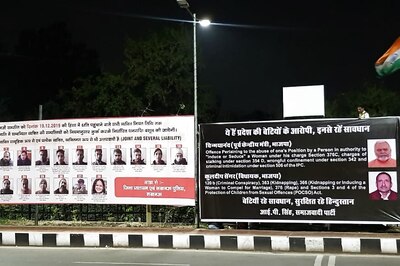
views
BRUSSELS: The European Union’s executive will make new proposals on Wednesday on collectively managing immigration, an issue that has damaged the unity of its 27 member states in recent years.
Masterminded by Germany, the plan aims to step up returns – including by cracking down on visas for citizens of countries that refuse to take their nationals back – and support foreign states in stemming migration before people reach Europe.
It would also legally oblige all member states, in exchange for funding from the EU budget, to host their share of refugees – something rejected by Poland, Hungary, Austria, Slovenia, the Czech Republic and others.
Here is how the “mandatory solidarity mechanism” would work, as described to Reuters by EU officials and diplomats familiar with the European Commission blueprint.
DURING REGULAR IMMIGRATION FLOWS
* Every year, the Commission will issue a projection of how many refugees each member state will need to take, based on the size of its economy and population, as well as estimated numbers of arrivals.
* For those who arrive, EU states would make voluntary pledges of how many asylum-seekers and migrants they would host or return to their country of origin.
* They can also offer capacity-building, meaning assistance on the ground in southern arrival countries Greece, Spain, Italy or Malta.
* If those pledges do not add up to at least 70% or more of the numbers the southern nations receive, the Commission will go back to member states and can assign each of them up to 50% of their hosting quota.
* On returns, should an EU country commit to send an unsuccessful asylum-seeker back but the person is still in Europe eight months later, the country would be obliged to host them. The European Commission aims for a 70% success rate for returns, compared to around 30% currently.
* The bloc’s executive would pay member states 10,000 euros ($11,750) for every relocated adult and 12,000 euros for every relocated unaccompanied minor.
* Should an EU state fail to honour its obligations, the Commission can start infringement procedures against them, a legal case for violating the bloc’s laws. Offenders could incur hefty fines, but the process takes years.
DURING SPIKES IN ARRIVALS
* For times when irregular immigration spikes to the levels seen in 2015/16, when more than a million people reached Europe from flashpoints in the Middle East and Africa, the Commission will propose a crisis mechanism under which states would not be able to offer capacity-building as a form of solidarity but would have to relocate those arriving or carry out returns.
WHAT HAPPENS NEXT?
None of this is likely to be agreed quickly, if at all.
European Council President Charles Michel, who chairs summits of EU leaders, said member states should first work on securing their borders and ensuring migrants are fairly treated there, align asylum benefits within the bloc and get more migration deals with foreign countries before tackling the issue of obligatory relocation.
Germany hopes for a “political roadmap” this year towards a future deal.
($1 = 0.8520 euros)
Disclaimer: This post has been auto-published from an agency feed without any modifications to the text and has not been reviewed by an editor




















Comments
0 comment